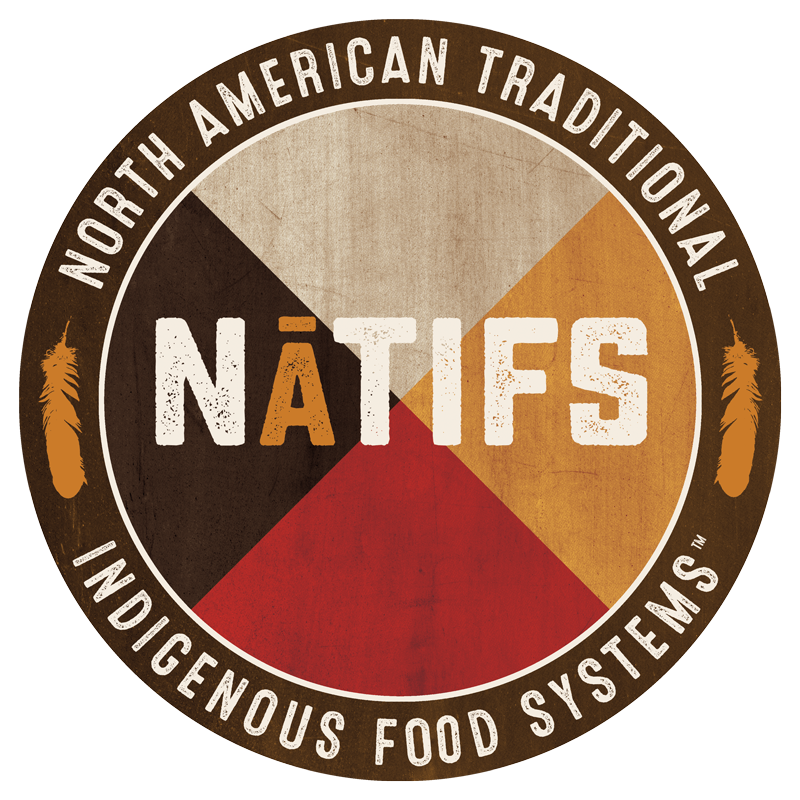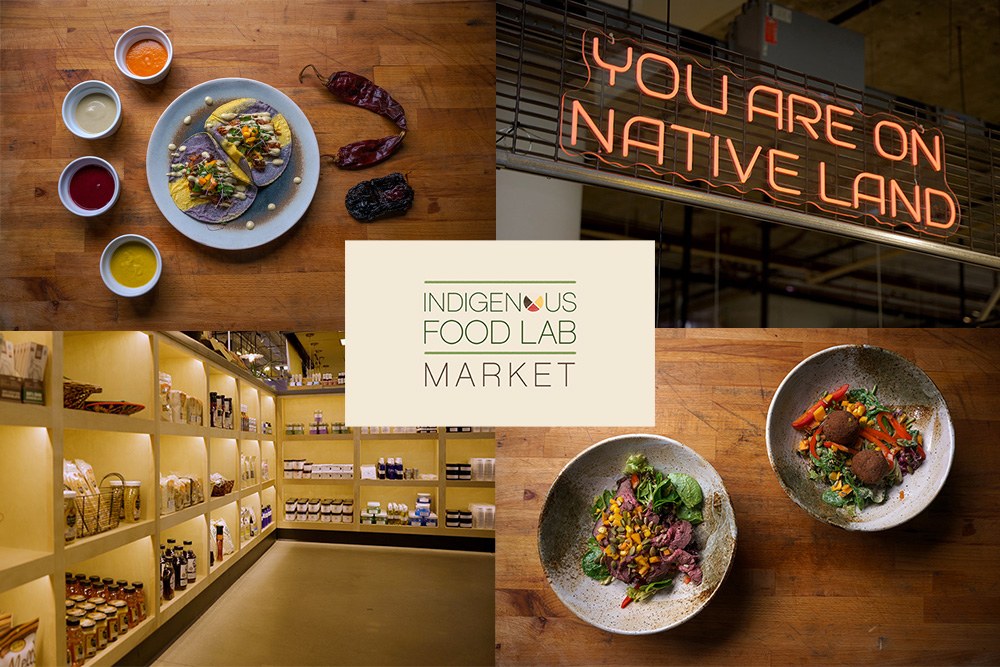The vision
In response to requests from across the country to assist with tribal food sovereignty projects, Chef Sean Sherman launched North American Traditional Indigenous Food Systems (NĀTIFS), a 501(c)(3) nonprofit organization dedicated to addressing the economic and health crises affecting Native communities by re-establishing Native foodways. Their mission is to promote Indigenous foodways education and facilitate Indigenous food access. NĀTIFS imagines a new North American food system that generates wealth and improves health in Native communities through food-related enterprises.
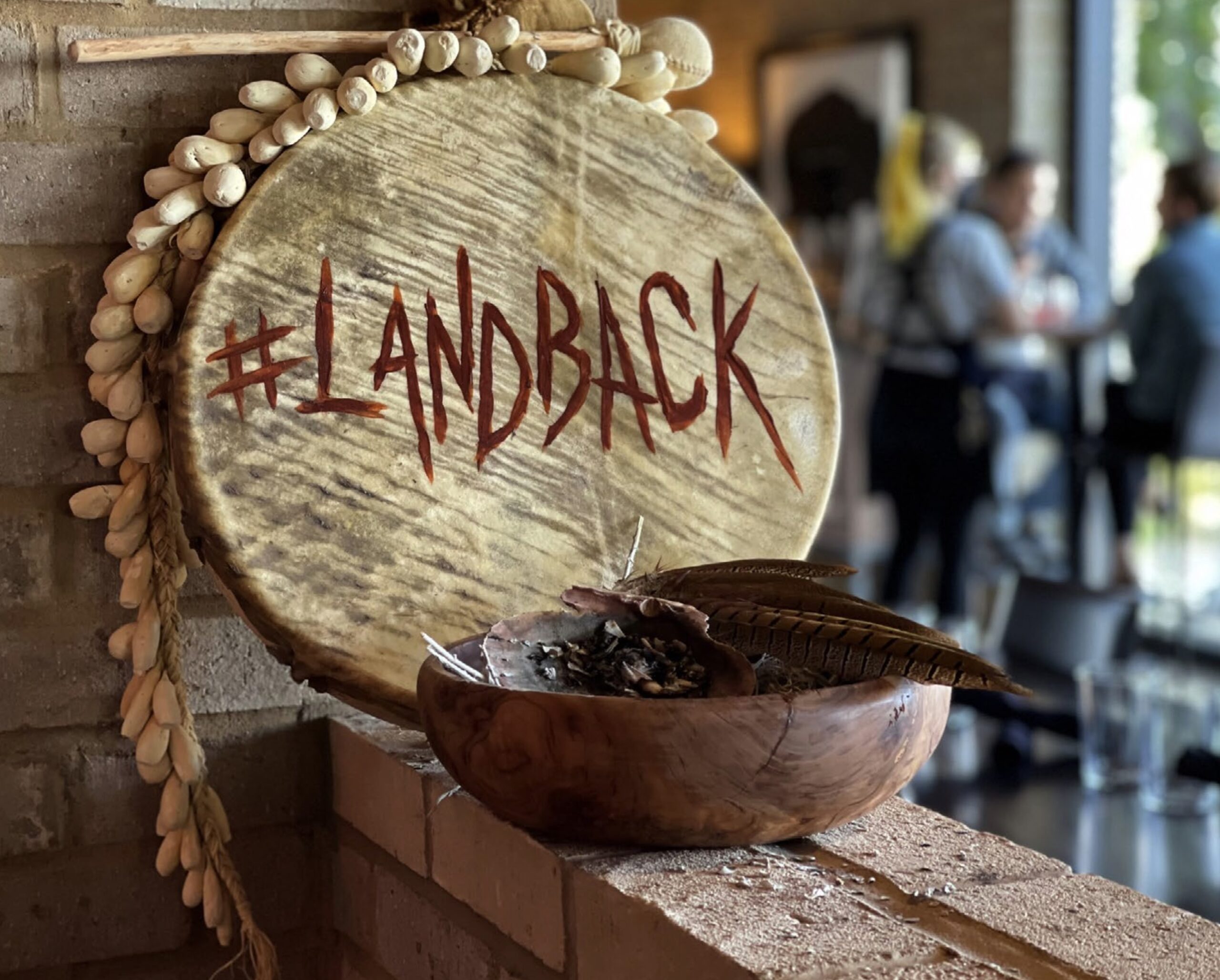
Indigenous Food Lab
A flagship project of NĀTIFS is its Indigenous Food Lab, a culinary training center and professional Indigenous kitchen for Indigenous chefs and entrepreneurs located in the Midtown Global Market on historic Lake Street in Minneapolis. The Indigenous Food Lab professional Indigenous kitchen has been in operation since 2020.
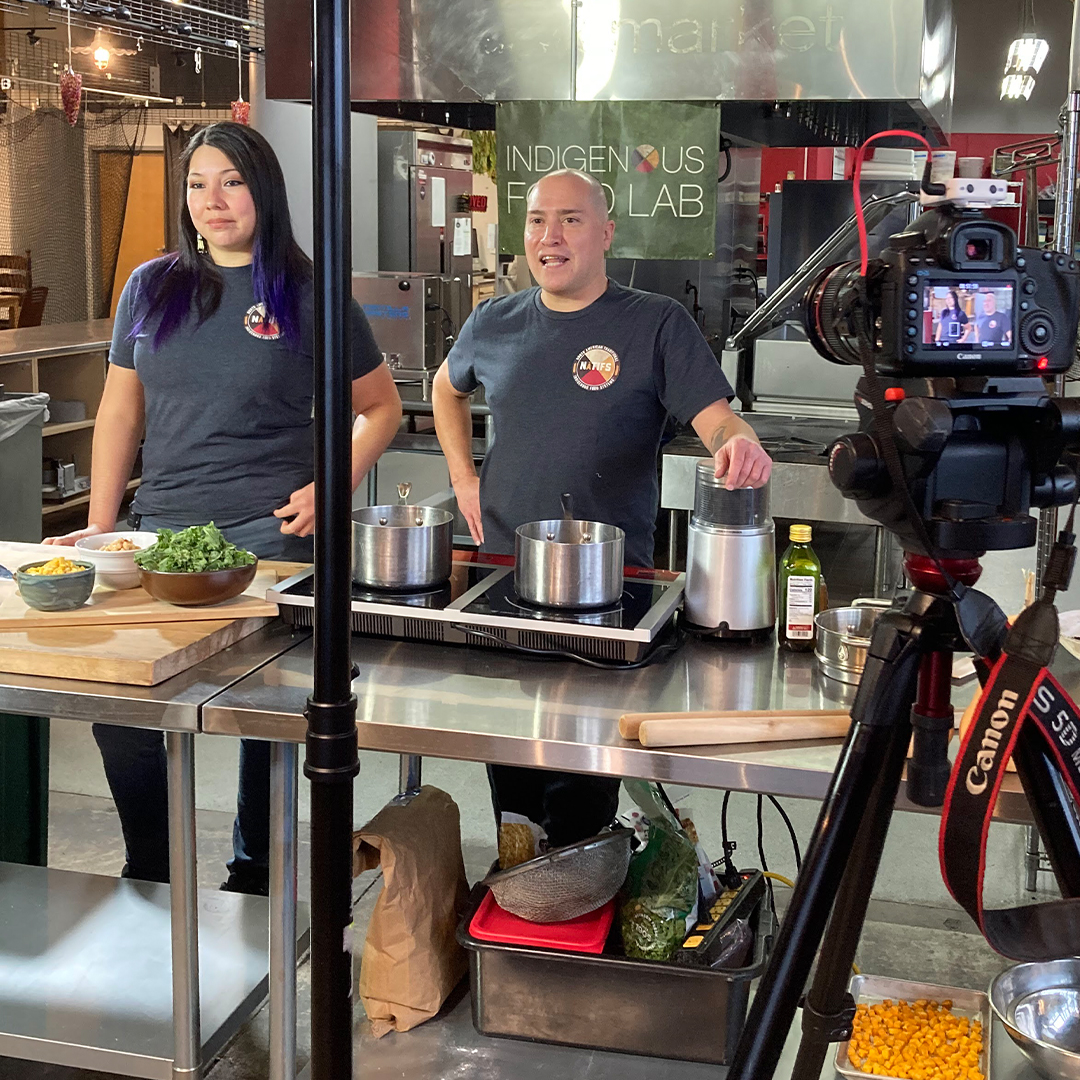
The demonstration/training studio for sharing and capturing Indigenous knowledge, Spirit Kitchen for testing concepts, and IFL Market retail Indigenous store opened in June 2023. Plans are underway to expand Indigenous Food Labs across the country to support regional Indigenous food enterprises, starting with Alaska, Montana, and South Dakota.
Francesca Garcia and Paul Molina film an educational video on how to prepare manoomin, or wild rice. The recipe, educational materials and instructional video our team created was distributed to school cafeteria professionals across Minnesota.
Food access and justice are inextricably intertwined. By providing education and training that give Native people access to healthy, local, Indigenous food, we can not only address serious issues of malnutrition, food-related illness, and economic impoverishment on tribal lands — we can also use our shared heritage to build bridges and build power within and between Native communities and our allies.
Heirloom corn is prepared outdoors in a cast iron pan at the Food Sovereignty Symposium and Festival in Michigan. The Indigenous Food Sovereignty movement is filled with incredible community members who bring knowledge, passion, and energy to our work and theirs.

Advocacy and Education
NĀTIFS advocates for policies that support Indigenous food systems and tribal food support programs, and provides education and resources to individuals and organizations interested in learning more about Indigenous foodways.
We aim to unite Native people around a common food heritage and its ability to bridge the tradition of our past with the promise of our shared futures. We will offer classes on Native American agriculture, farming techniques, seed saving, wild foods, ethnobotany, indigenous medicines, cooking techniques, regional diversity, nutrition, language, history, health and healing.
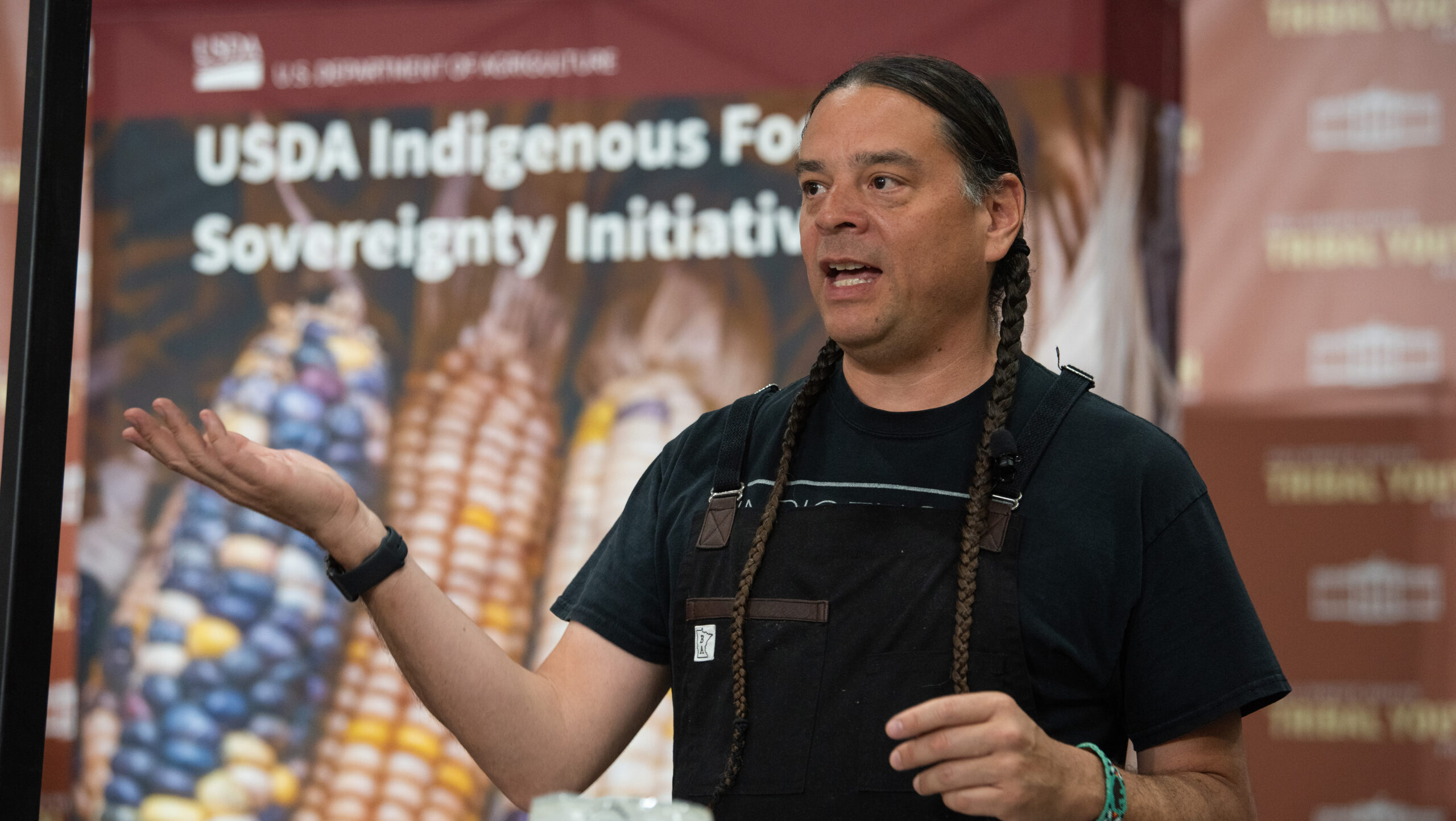
Chef Sean Sherman speaks to youth and governmental leaders attending the White House Native Youth Summit about the USDA Indigenous Food Sovereignty Initiative. With initiatives like these, we work to increase access to healthy Indigenous foods.
Seed and Knowledge Sovereignty
NĀTIFS is developing alternatives to traditional food systems that lift up Indigenous entrepreneurs, producers, farmers, foragers, seed savers and educators, helping to preserve and protect traditional agricultural knowledge and practices.
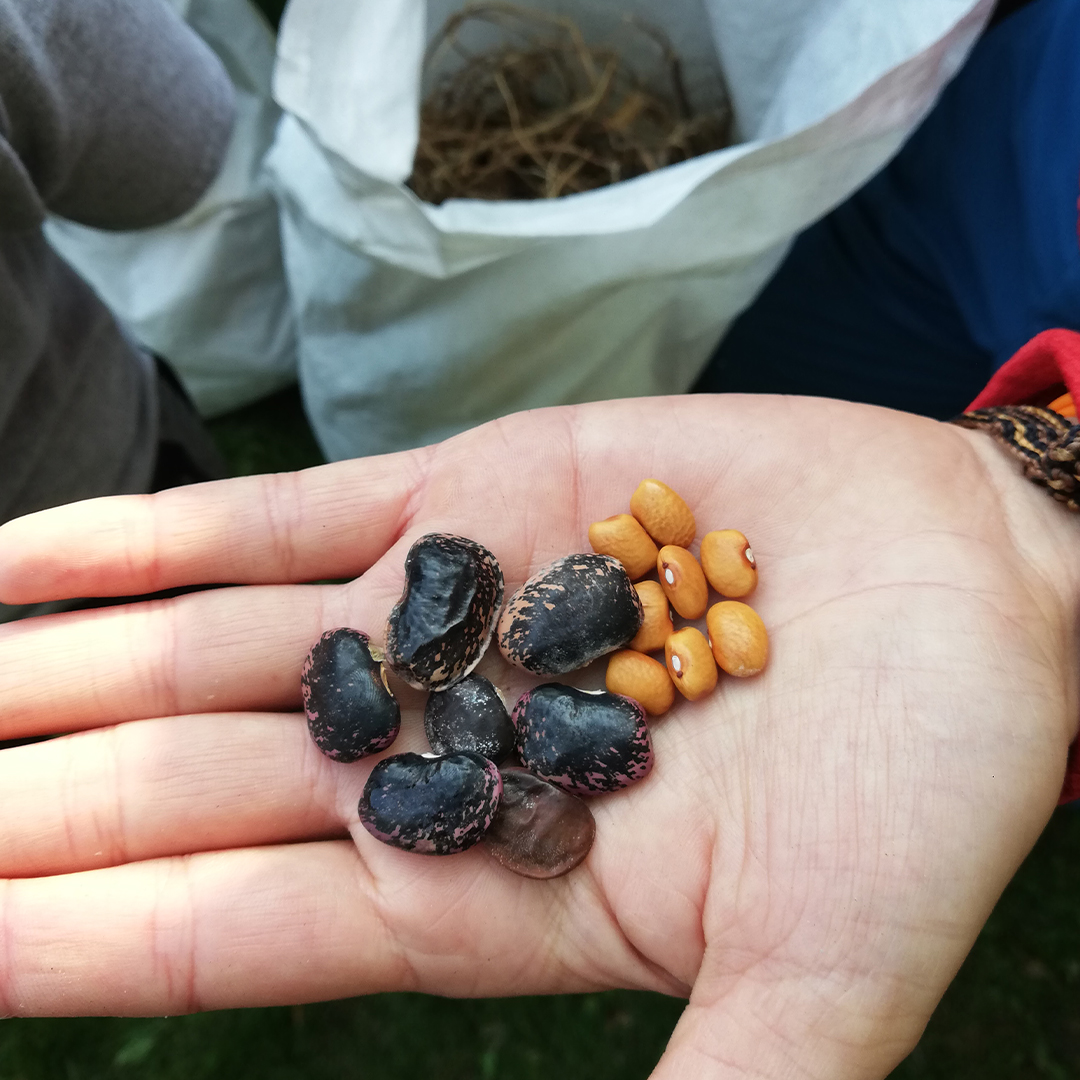
Heirloom seeds and beans like Dakota bush beans are held by someone harvesting. We work with seeds, beans, and plants that have been cared for by generations of food producers who work to maintain the integrity of the plant.
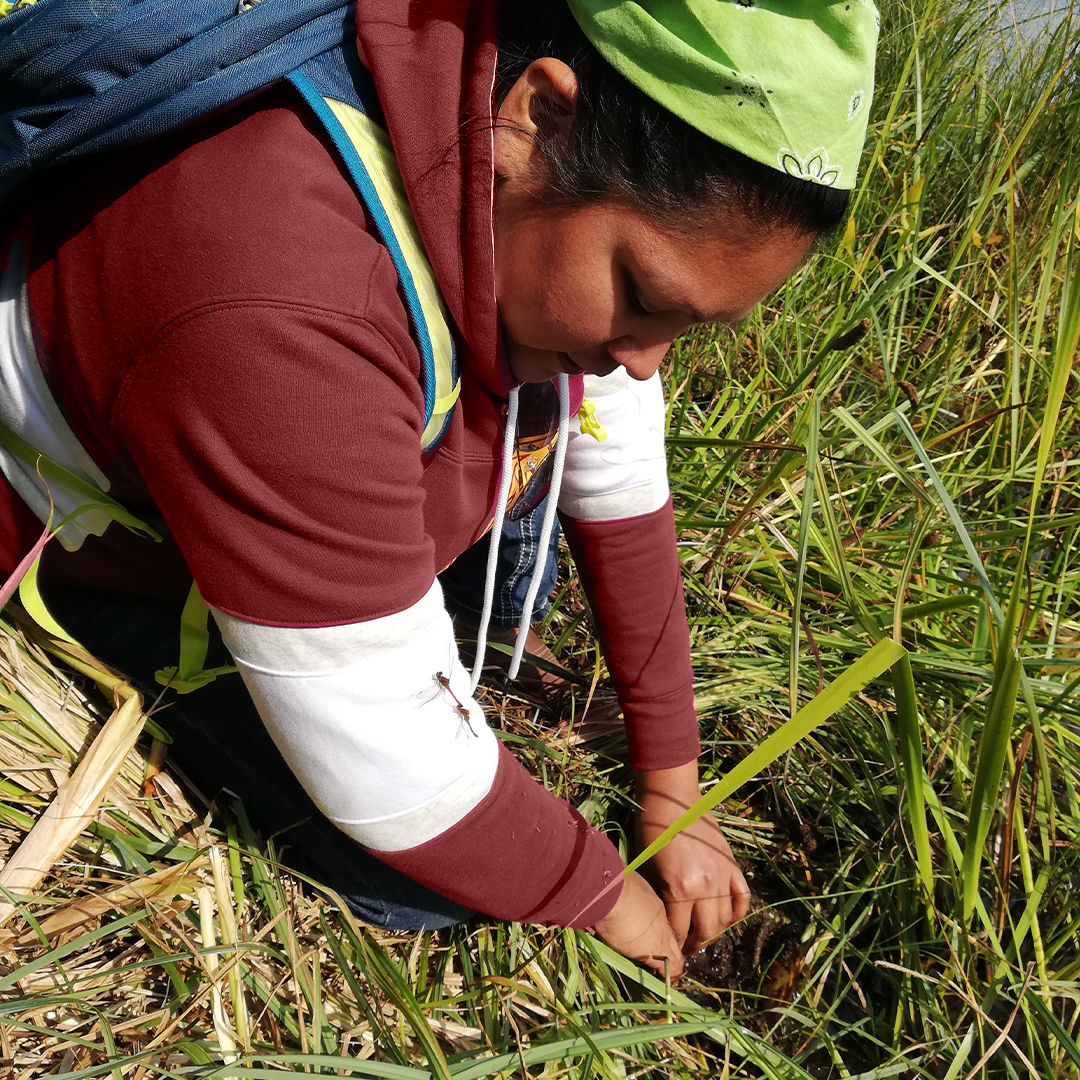
NĀTIFS is partnering with tribes across the country to help them reach their Indigenous food sovereignty goals, and here in Minneapolis, they’re working with the Indian Health Board on the Mashkiikii Gitigan (medicine garden), promoting Indigenous foodways education by creating learning opportunities around gardening, Native plants and their cultural importance, and Indigenous understandings of the land.
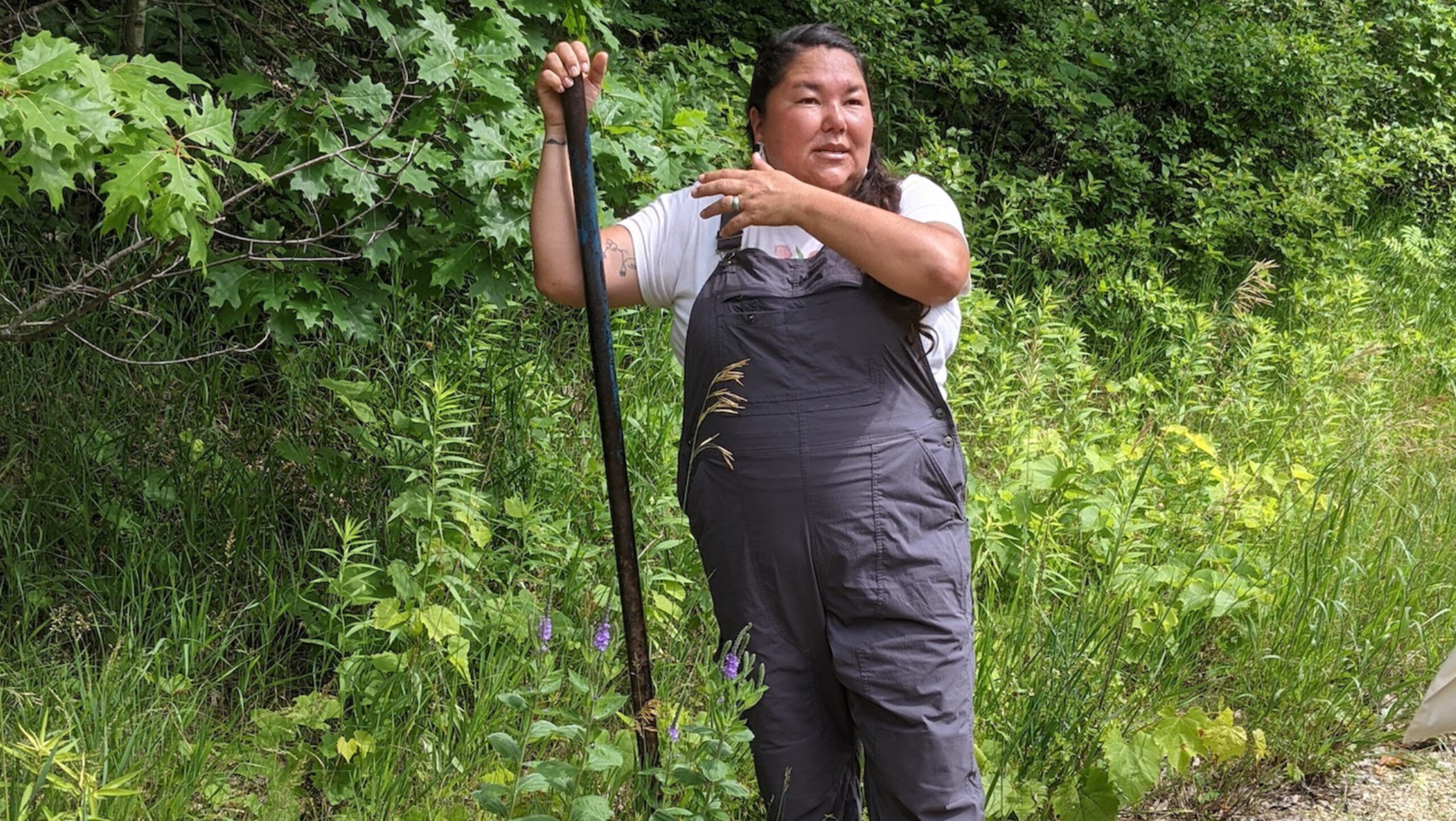
Ethnobotanist Linda Black Elk leading a group on a plant walk to forage plants and medicines. Connecting with educators and knowledge-keepers in our community creates hands-on learning opportunities to pass on important knowledge.
Indigenous Foodways Curriculum
Indigenous Education is thousands of years of ancestral, regional knowledge that passed down countless generations, giving us the blueprint for a healthy, sustainable, community-based lifestyle. Realizing the loss of our Indigenous Education through boarding and residential school assimilation efforts, it is imperative as Indigenous peoples that we define and share our own knowledge base.
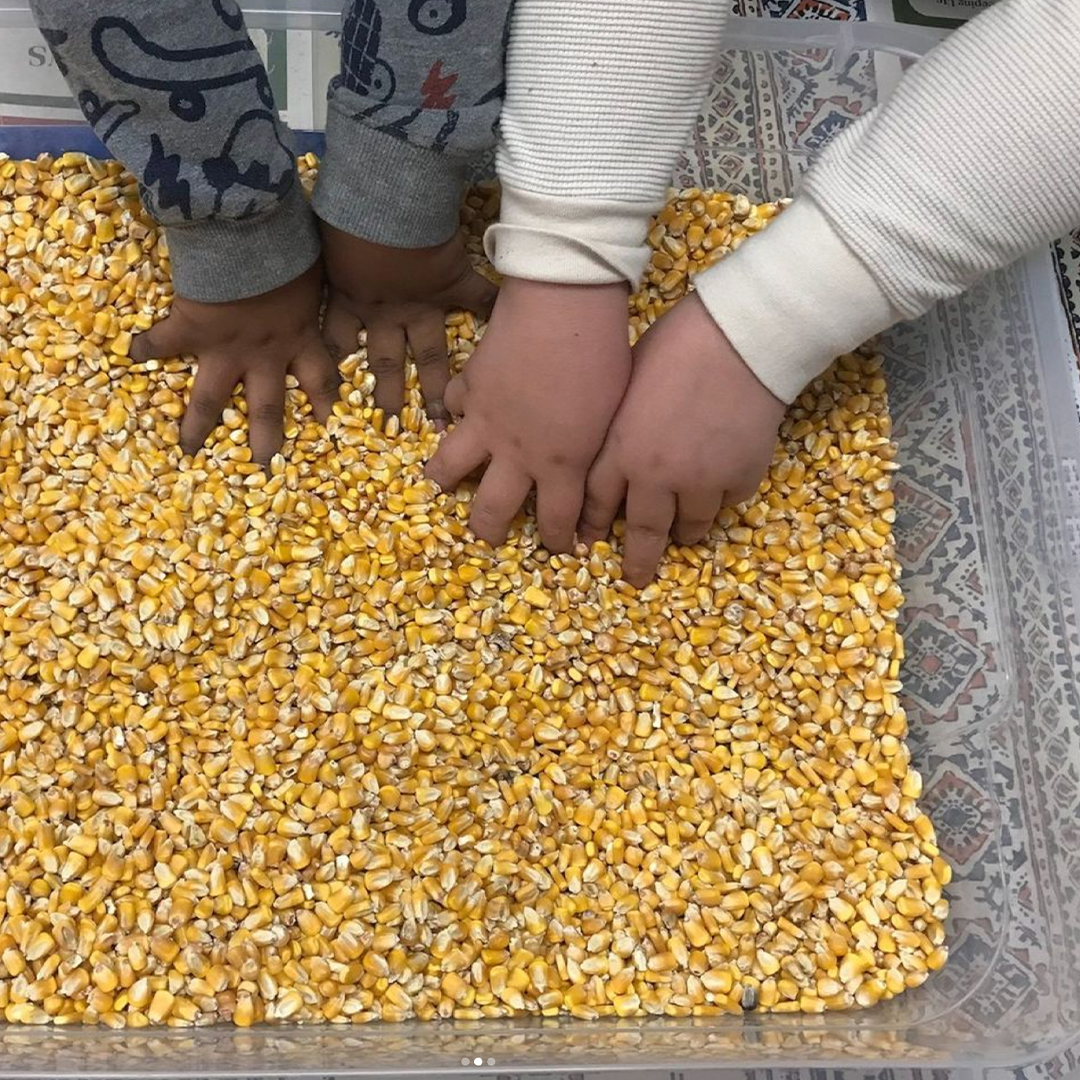
Reclamation of ancestral education is a critical part of reversing the damage of colonialism and forced assimilation, and food is at the heart of this reclamation. NĀTIFS is designing Indigenous education curricula for all ages to help fill the knowledge gaps left by forced assimilation, including Indigenous foodways and the importance of preserving and protecting Indigenous food systems.
Two little pairs of hands involved in a touch-based learning station at Anishinaabe Academy’s Family Night. At local events such as these, we connect with the local Indigenous community to provide a variety of ways to learn, touch, taste, and understand their food.

